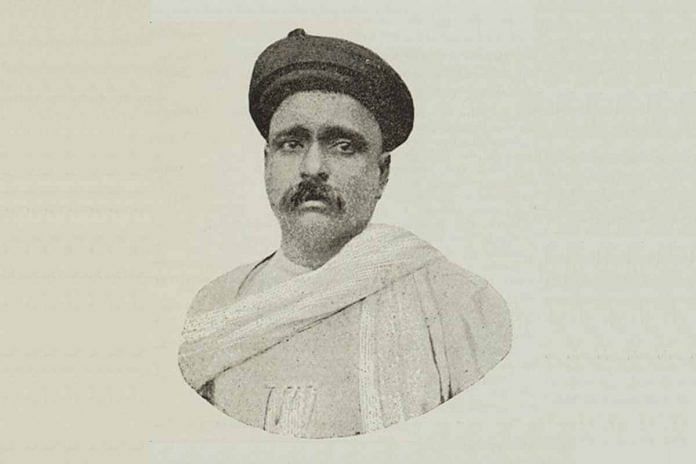New Delhi: Considered the first popular leader of the freedom movement, Bal Gangadhar Tilak was born on 23 July 1856 in Ratnagiri, Maharashtra. A nationalist to the core, he was a great scholar, mathematician and a philosopher.
Tilak was one of the prime architects of modern India and probably the strongest advocates of swaraj (self rule). He was conferred upon the title, “Lokmanya” (beloved leader) by his followers.
Tilak completed his education from Deccan College, Pune — then called Poona — where he earned his bachelor’s degree in mathematics and Sanskrit in 1876. He also received a law degree from the University of Bombay in 1879.
Later, Tilak took up teaching at a private school in Poona, which acted as the launch-pad of his political career. Tilak founded the Deccan Education Society (1884), aimed at educating the masses through the English language, which he considered as a conveyor of liberal and democratic ideals.
Tilak’s brush with journalism
Tilak owned and edited two weekly newspapers — Kesari (Marathi) and The Mahratta (English). For him, newspapers were a powerful medium to criticise the colonial regime in India.
Tilak’s editorial in Kesari titled “The misfortune of the country” in 1908 slammed the brutal bureaucracy under the British rule, leading to his imprisonment. He was sent to jail in Mandalay, Myanmar, from 1908 to 1914 where he wrote a book Geeta Rahasya.
Using religion to unite Indians
Tilak used Hindu religion in order to widen the national movement. In 1883 Tilak organised “Ganesh Utsav” that acted as a melting pot for people from different castes and communities at a time when such gatherings were banned by the British.
Tilak popularised Maratha icon Shivaji and organised first Shivaji festival in 1886. The religious symbolism used by Tilak pushed princely states such as Baroda and Sangli to join the national movement.
Despite being perennially against early marriage, he opposed the 1891 Age of Consent Bill. The legislation proposed to raise the minimum age for a girl to get married from 10 to 12 years. Tilak saw the bill as interfering with Hinduism.
Political career
Tilak joined the Indian National Congress in 1890 and opposed the moderate nationalists within the party. Following the partition of Bengal in 1905, Tilak supported the Swadeshi movement and said that once British goods were boycotted, there will be a gap which will be filled by the Indian goods. Tilak quit the Congress in the 1907 Surat Session due to his differences over selection of the new Congress president.
He founded the Indian Home Rule League in 1914, setting the stage for the freedom movement. He gave the slogan of “Swaraj is my birthright and I will have it”. Tilak also concluded the “Lucknow Pact” with Mohammed Ali Jinnah which helped create a “Hindu-Muslim” unity during the Khilafat movement (1919) and the Non-Cooperation Movement (1920).
Tilak died of pneumonia on 1 August, 1920 in Mumbai.
Mahatma Gandhi called him “The maker of modern India” while Jawaharlal Nehru described Tilak as “The father of the Indian revolution”.



